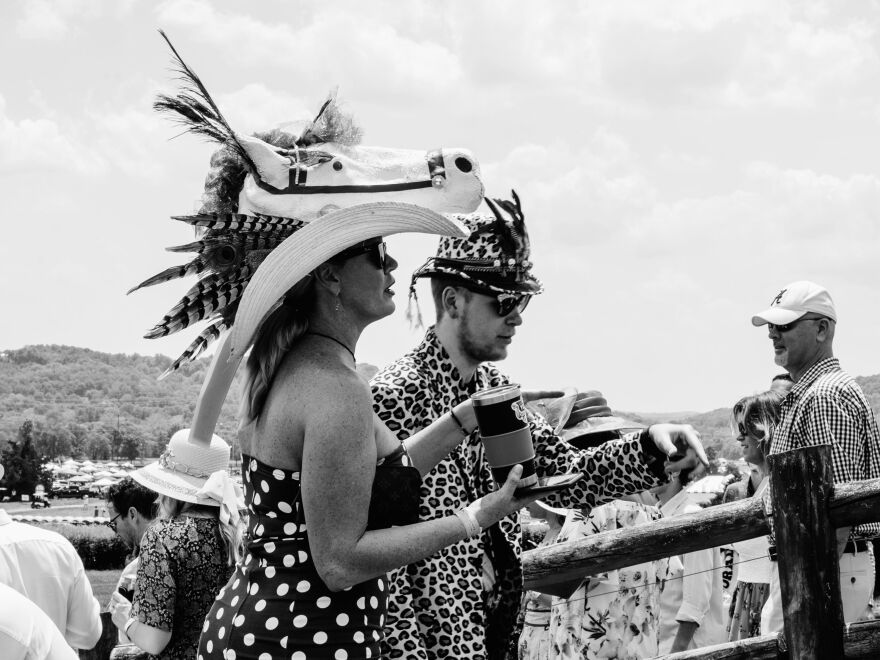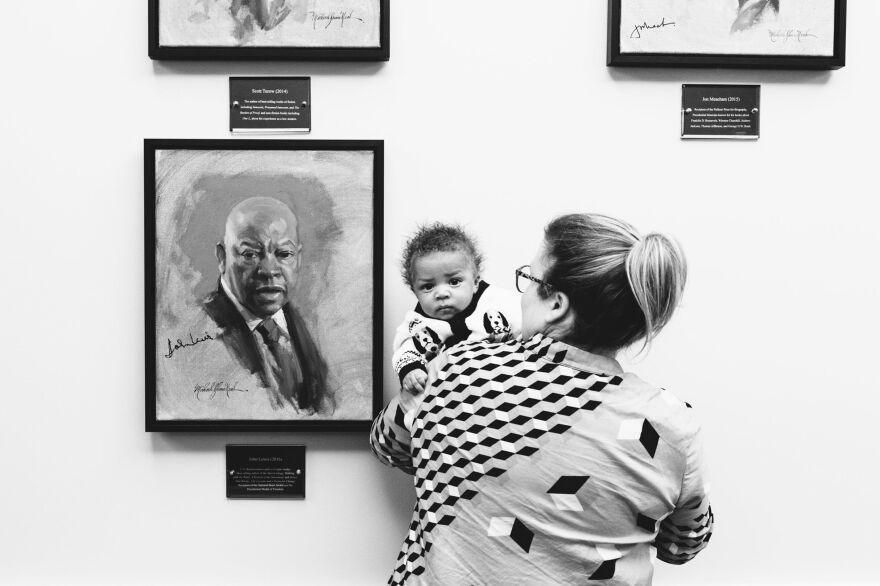Photography and nostalgia often have gone hand in hand; the scrapbook, the family album, the postcard, the Polaroid, even the Instagram post all reinforce a love for the way something was. In Nashville: Scenes from the New American South, novelist Ann Patchett and photographer Heidi Ross — both longtime Nashvillians — instead set out to show, in all its varied forms, how Nashville is.
"As emotions go, nostalgia is both cheap and unrealistic," Patchett writes. "Sometimes we're not even nostalgic for things we liked, it was just that we were used to seeing a particular thing in a particular place."

The book, consisting of photos mostly taken in 2017, is about Nashville's multiple identities: how the city is home to both the Grand Ole Opry and The Gulch — one a legendary mainstay of Nashville arts, the other a neighborhood that many longtime residents call made-up.

It is expressly not intended to immortalize Nashville. Nashville, both the movie and the television show, already have done that. It's a project born of and meant for this moment, a love letter to Nashville's charms and quirks as it evolves further.
NPR's Cameron Pollack spoke with Ann Patchett and Heidi Ross about chronicling Music City's metamorphosis.
How did you choose which people and places would be documented for the book?
Heidi Ross: There were some premeditated shoots, things we knew we had to get, but most of the book ended up being found moments around Nashville, just me going around with my camera in different neighborhoods.


Music is a big part of the book, obviously. It's hard to find anything, any corner or scene here that doesn't somehow have music involved. I'm pretty sure I'm the only person in Nashville that doesn't sing, play or write music, or aspire to. It's everywhere.
I was also shocked at how many people were open to being part of the project. You don't really expect that to happen, even in Nashville, anymore. Being in people's lives that way is always special to me.


What was your favorite photograph from the book?
Ross: My image of the Fisk Jubilee Singers is my favorite; it was the most meaningful experience I had shooting the book, though I don't think the image does it justice. I don't know if I could do it justice, frankly. They've performed for kings and queens, but when I photographed them, they had no choral robes and were sitting in desks, with a forest of music stands crammed into the back of the room.

As soon as they started singing, I started crying. I was so glad I had a camera in front of my face. I shot a few seconds of video on my phone and posted it to Instagram, and I still go back and listen to it at least once a week. That said, they aren't less or more Nashville than those crazy pedal taverns that are all over the place now.

What's one thing you learned as you were photographing the book?
Ross: I learned to be braver. There are shots I didn't take that I regretted later, and the reason I didn't take them was because I was afraid of being intrusive. I improved at this over the course of the book, but it's still something I work on. I'm very mindful of people's space, and finding the right balance of reaching out and being respectful is always challenging.

What about the book do you hope resonates with people?
Ross: I'd love for people to stop and just look at the pictures for little longer than they otherwise would have, maybe interpreting some of these places in Nashville in new ways that they haven't before. To me, the book is a collection of postcards from the many different Nashvilles that coexist right now. It's a place that goes forward and backward in time, based on where in town you are, and I hope people glean that from reading it.


Ann Patchett: I hope they glean the fact that it is a consistent vision, right of this moment. If you read travel pieces about Nashville, you're taken to the same places, over and over again, but we're not just the Grand Ole Opry and Vanderbilt.
Ultimately, living here is like living in a Mixmaster. I am forever turning down the street that I've driven down my whole life, and the whole street has been taken up, and they've just put another neighborhood down on top of it. And you can get very wistful and sentimental, and say "Oh," you know, "the past." Everybody loves the past. But in fact, to grow is to be alive.
Copyright 2023 NPR. To see more, visit https://www.npr.org.





